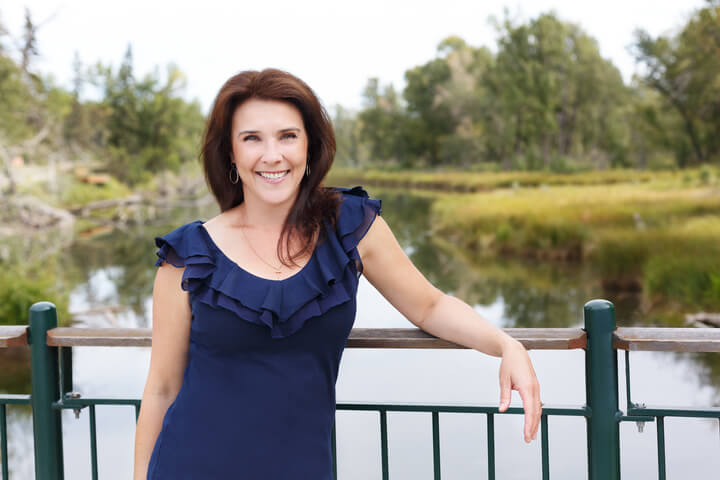Future Alumni already working to transform lives, transform communities
Barb Tiedemann didn’t initially set out in life to help preteen girls navigate the increasingly complicated world in which they’re growing up.
But that’s nonetheless what Athabasca University’s 2019 Future Alumni Award winner was called to do. After seeing her own daughter’s and her friends’ daughters’ experiences, she registered in the Master of Counselling program to help her answer that call.
“I feel like I’m coming full circle with my passion in life,” she said. “When I was in high school, and looking at university, I actually wanted to go into social work.”

After discussing it with her mother, whose opinion she valued greatly, Tiedemann agreed that the potential for emotional burnout might be too high in that career path, so she opted to pursue a bachelor of physical education at the University of Alberta instead.
Yet her initial calling to social work still made itself known in the course of her undergraduate degree, and she gravitated toward the adaptive phys-ed. specialty, working with people with motor challenges. After graduation, she found work as an early intervention consultant, supporting families with young children who had developmental delays or disabilities.
“It was interesting that I wanted to go into social work but didn’t, and I went into phys-ed. which I loved and kind of combined them both with my role as an early intervention consultant,” she said.
After 11 years doing that type of work, Tiedemann stepped away from her career to focus on raising her family—but the capacity for empathy and a desire to help people again found its way to the forefront.
Through the years, Tiedemann had many friends with preteen daughters, and in discussions with them, she heard about many of the challenges young girls face—challenges that aren’t necessarily new but are often amplified in this age of technological connectivity.
“The same themes kept coming up in our conversations. It was the difficulties their girls were having with friendship anxiety, with feeling like they needed to belong, and they were overly concerned with fitting in with a group,” she said.
Tiedemann then found that when her daughter was around that age, she was facing many of the same challenges. She worked with her daughter to help her navigate what was happening in her life, but when she looked around at what other supports were available, she found them to be few and far between, as well as too narrow in scope.
She believed that targeting a specific issue, such as friendship or anxiety, was missing the bigger picture of the kind of experience girls were facing. She felt that what was needed was a more wholistic approach, and for girls to have access to this information before entering the difficult junior-high years.
And so, without any formal training in counselling or social work, she connected with a psychologist who specialized in supporting girls and women, who then invited two other women to the table with similar interests.
Together they developed the B’Tween Girls curriculum, an eight-week comprehensive, preventive mental health program meant to support girls in grades four to six in navigating issues like friendship, belonging, anxiety, and conflict resolution.
Then they began to look at how to get this unique program out to the girls who need it. The group successfully facilitated B’tween Girls with students in Calgary schools, and the feedback was immensely positive.
“The first year we started designing this program, I realized that the scope of my involvement needed to increase,” Tiedemann said. “I wanted to effect change in a bigger way than just creating this program and facilitating it.”
Without further credentials though, she worried she wouldn’t be taken seriously. She didn’t have time in her life to sit in a bricks-and-mortar school, however, so she was drawn to the idea of online education.
Recalling that her aunt had gone back to school at age 50, earning a doctoral degree from Athabasca University, she realized the Master of Counselling program could put her on the right track.
“This program has just been phenomenal in teaching me what I need to know, and broadening my perspective on how to reach people, how to respect people, and how to support people,” she said.
While Tiedemann has not yet decided exactly what direction her career will take her after convocation, she fully intends to continue her work supporting young girls in navigating an increasingly complex world.